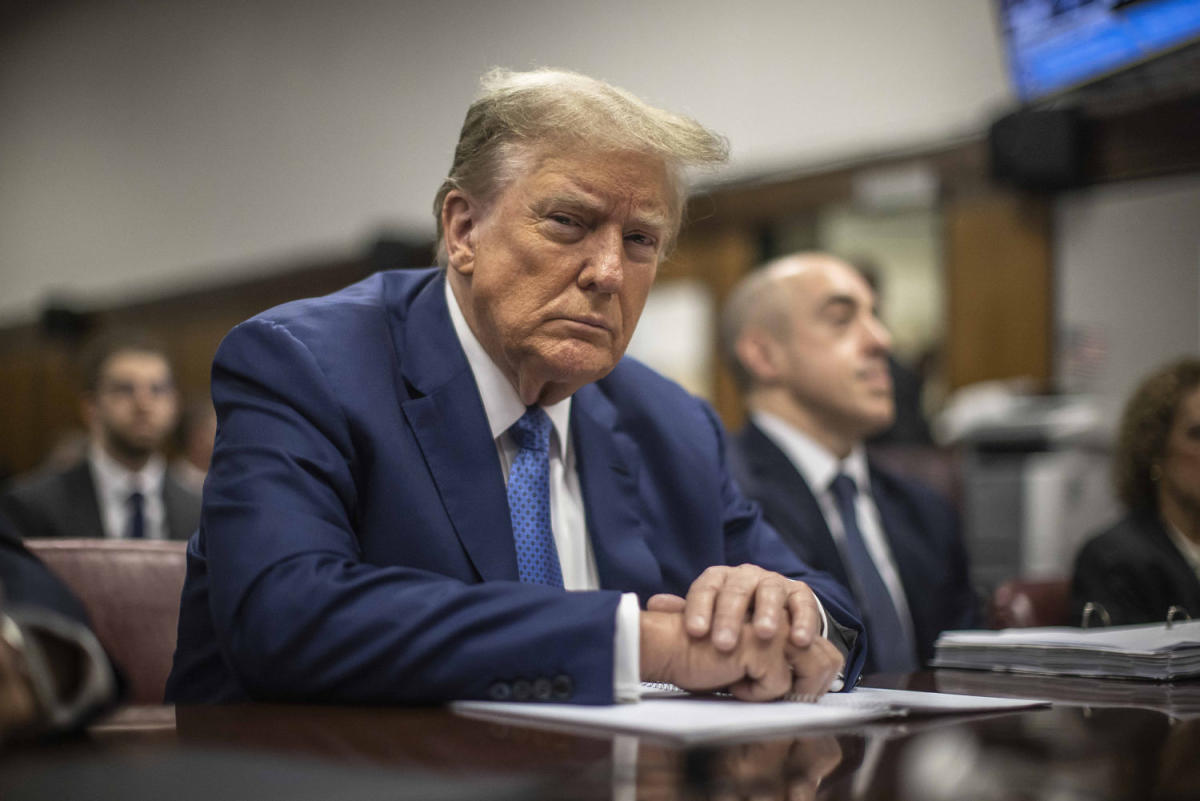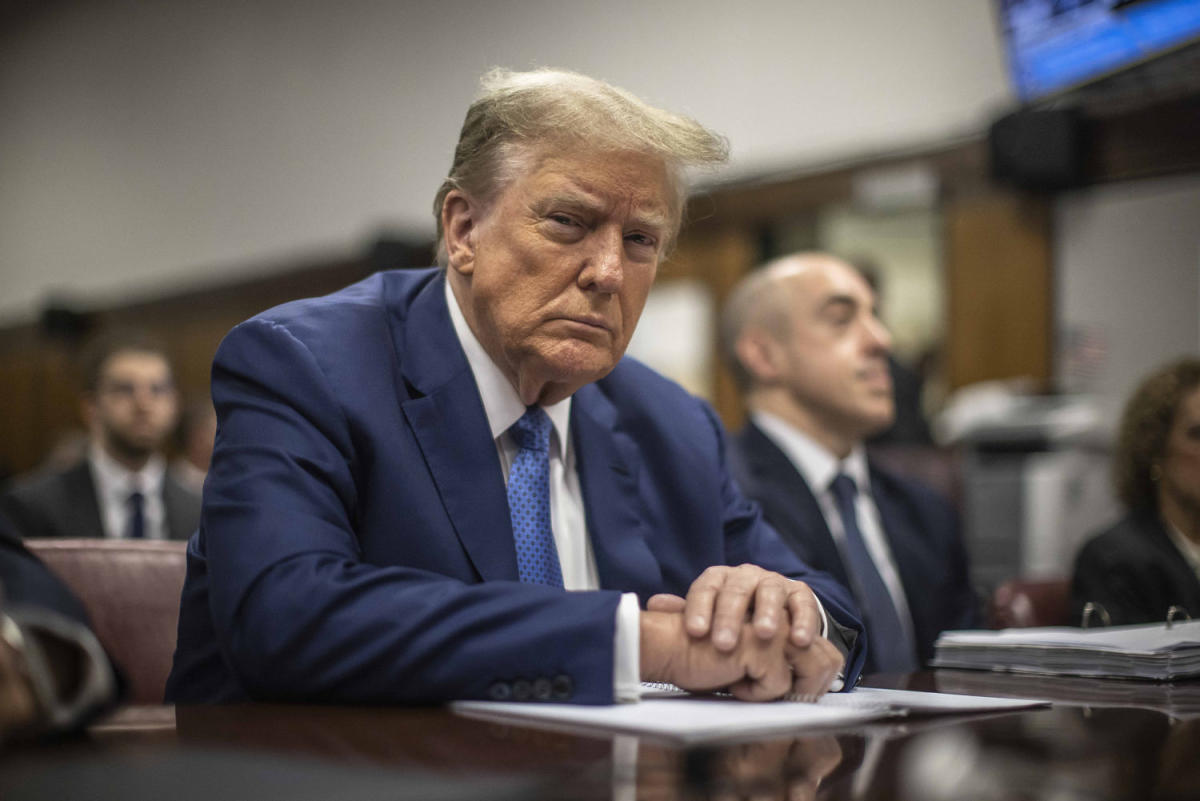
Legendary Supreme Court lawyer and SCOTUSblog publisher Tom Goldstein argued in The New York Times recently:
With the election now over, the courts have to decide quickly whether to move forward with the criminal cases against Donald Trump. Although this idea will pain my fellow Democrats, all of the cases should be abandoned.
This strikes me as off-base from the start. The emotion Democrats, Republicans or independents are feeling — pain, joy or whatever in between — doesn’t determine whether criminal cases should proceed. But let’s unpack his reasoning.
Goldstein goes on:
Democracy’s ultimate verdict on these prosecutions was rendered by voters on Election Day. The charges were front and center in the campaign. The president-elect made a central feature of his candidacy that the cases were political and calculated to stop him from being elected again. Despite the prosecutions, more than 75 million people, a majority of the popular vote counted so far, decided to send him back to the White House.
OK, so now it’s clear that it’s not an issue of an odd framing but a flawed premise. As I explained ahead of Election Day, Trump’s criminal cases were effectively on the ballot, only because the election outcome would determine whether and how the various prosecutions would proceed. But they weren’t literally on the ballot.
Advertisement
Advertisement
Voters put Trump back in the White House for all manner of reasons, none of which matter to whether his cases continue. By the same token, had Trump lost the election, that wouldn’t have been some extra reason for the cases to proceed. It simply would have removed a legal impediment to their going forward.
Goldstein is correct that the two federal cases “are history.” Special counsel Jack Smith already seems to be taking steps toward winding them down. But even if Smith had plowed onward through Trump’s inauguration, the cases would have been paused at least and likely dismissed by the Trump Justice Department, Trump would have pardoned himself, or both. At any rate, the federal cases do seem on their way to being “abandoned,” so it’s basically a moot point.
What about the state cases, then, which presidents don’t have the power to pardon or dismiss?
That’s where things get even weirder. Goldstein writes, “A central pillar of American democracy is that no man is above the law.” So far, so good. Then he continues: “But Mr. Trump isn’t an ordinary man.” The problem with that statement is that, in addition to not doing the work of an actual argument, it contradicts the previous line. That is, if a central pillar of American democracy is that no man is above the law, then that pillar applies to everyone, no matter how ostensibly extraordinary they are.
Advertisement
Advertisement
“Moreover,” the piece continues, “the state cases against him invoke legal strategies that had never been used to criminalize the behavior that prosecutors charge. Rightly or wrongly, they carry the stench of politics and, if pursued, could lay the groundwork for political prosecutions of future presidents.”
Let’s take those points in turn: that (1) the state cases involve novel charges, and that (2) they smell political and could therefore lead to political prosecutions of future presidents if they continue.
I happen to agree with the novelty point. I just don’t see its relevance here. It’s true that Trump’s novel conduct was met with novel charges. So he should be afforded no less due process in fighting them than any other defendant. Indeed, I also take as a given that no criminal cases can proceed against a president while they’re in office.
But the novelty doesn’t lead logically to the conclusion of dismissal — as opposed to, say, deferment until the defendant leaves office and loses the benefit they gained in winning a pause on their prosecution. One can argue that the cases shouldn’t have been brought to start with, but whatever the merits of that argument, Trump’s election didn’t strengthen it.
Advertisement
Advertisement
More in Politics
Onto the stench. The statement that the cases “[r]ightly or wrongly … carry the stench of politics” borders on meaningless. At best, that reads as another way of saying the cases shouldn’t have been brought in the first place. Why would it have been proper to prosecute a smelly case only if Trump had lost at the ballot box? Again, that the cases were stinky, stupid or the like were arguments (such as they are) one could have made all along. And again, they didn’t become stronger on Election Day.
But as for continued pursuit of the cases leading to political prosecutions of future presidents, if I understand the argument, it rests on an assumption that if the cases were dropped now, then that would deter Republicans from targeting Democrats in the future? Among the many reasons to doubt that premise is that the leader of the Republican Party — the man who would benefit from the op-ed’s proposal — has repeatedly vowed retribution against his opponents.
Subscribe to the Deadline: Legal Newsletter for expert analysis on the top legal stories of the week, including updates from the Supreme Court and developments in Donald Trump’s legal cases.
This article was originally published on MSNBC.com
EMEA Tribune is not involved in this news article, it is taken from our partners and or from the News Agencies. Copyright and Credit go to the News Agencies, email news@emeatribune.com Follow our WhatsApp verified Channel




